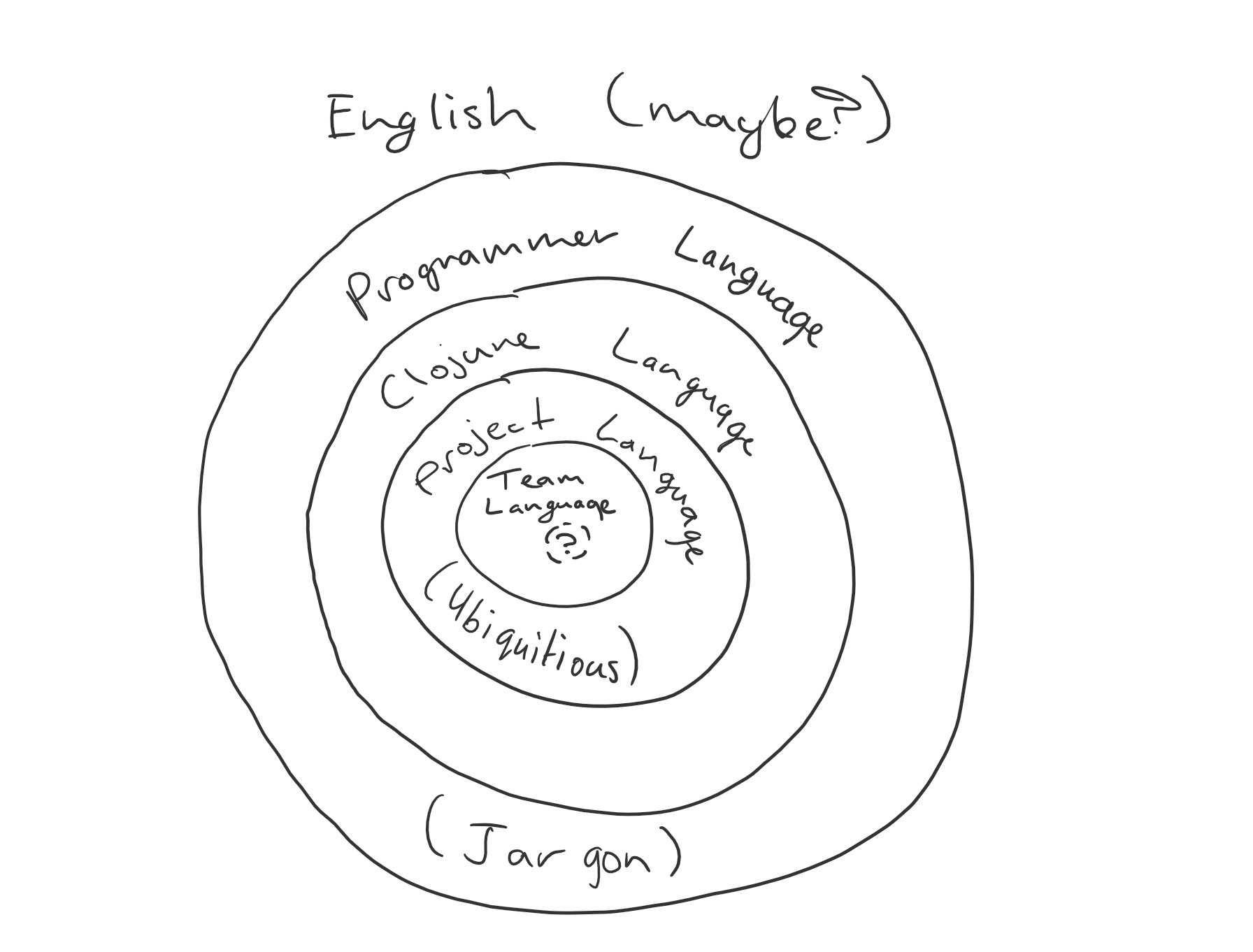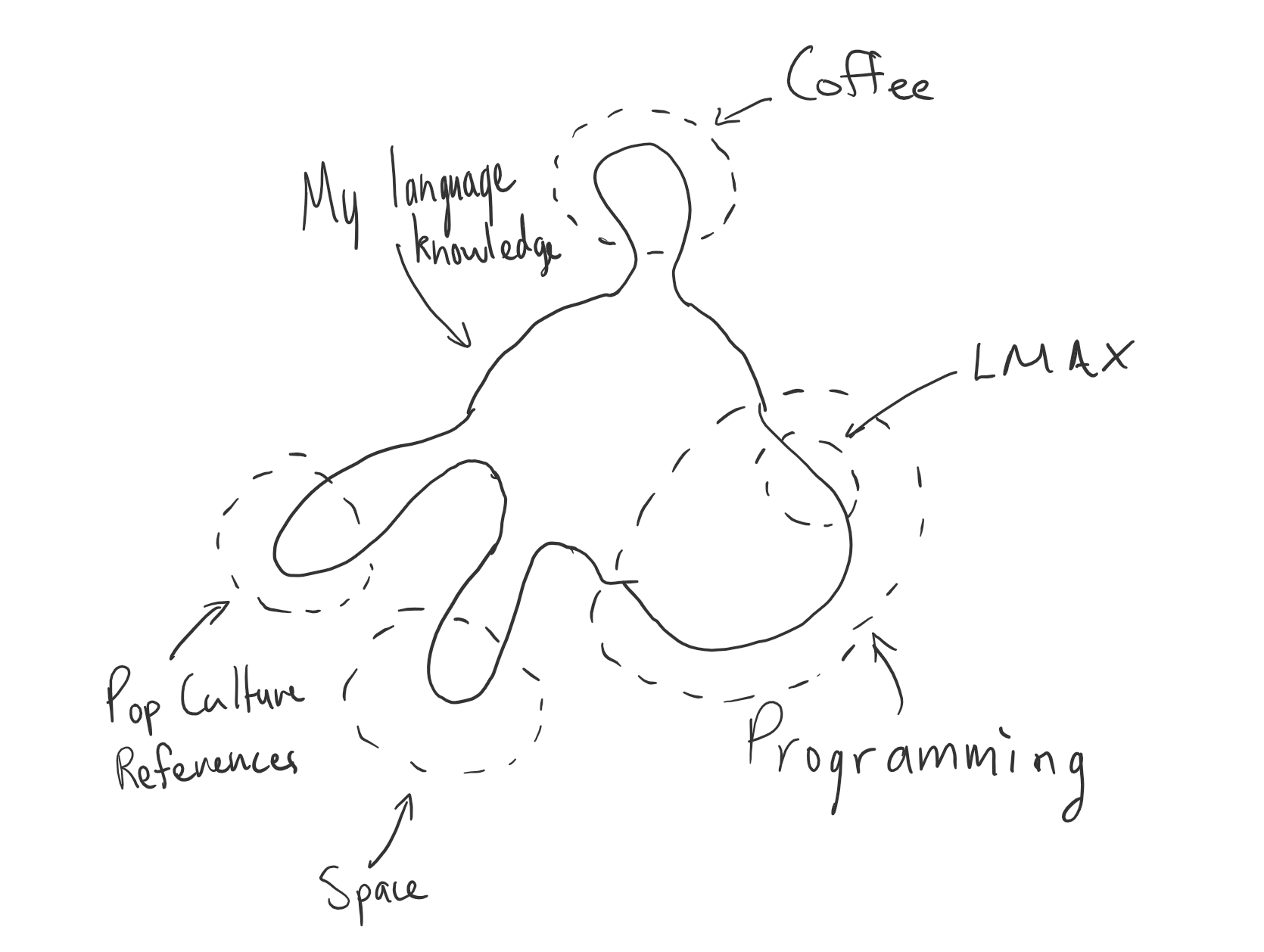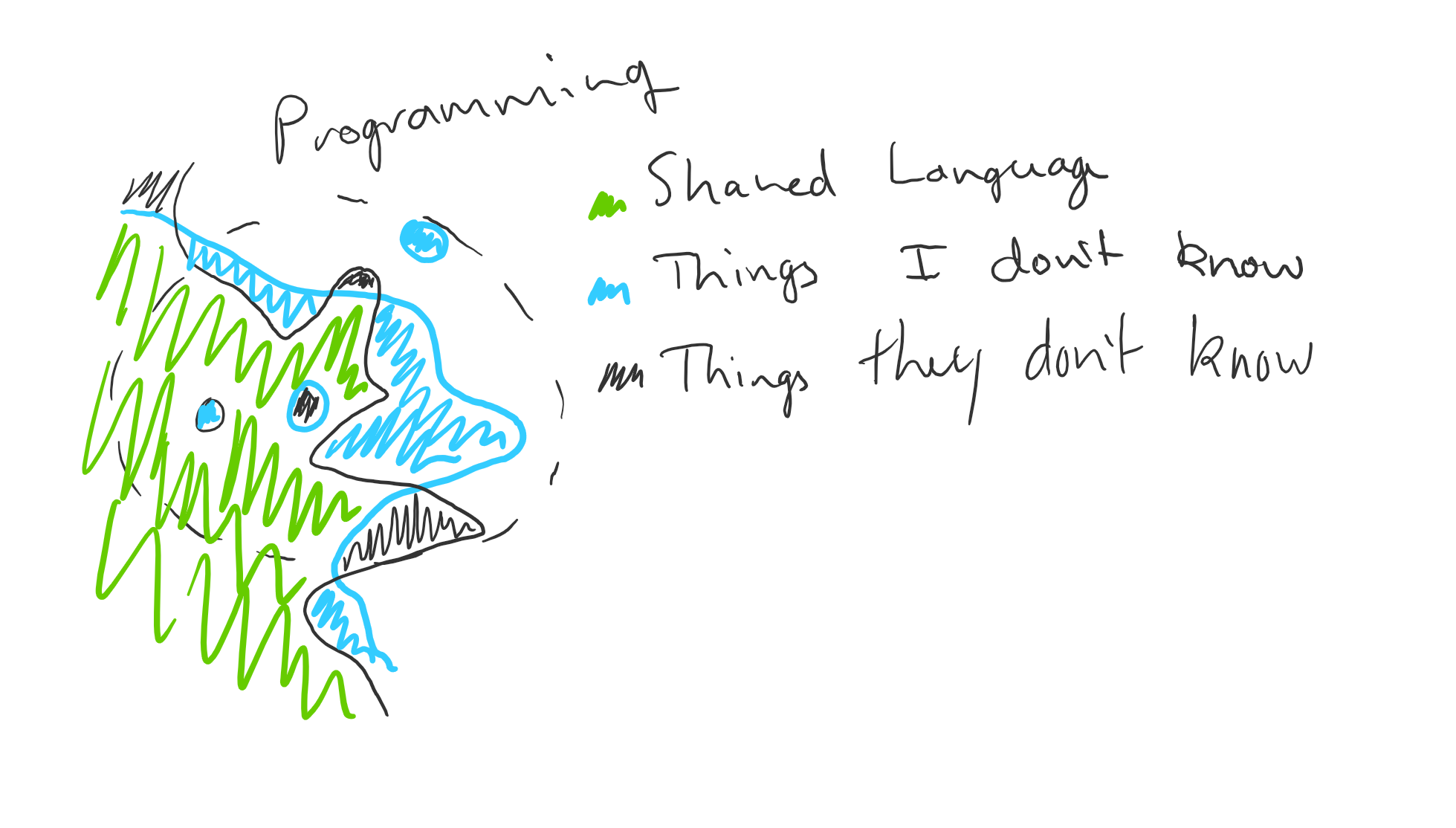The Power of Names
Apr 7 2019So I’ve just started working with a new team at BlueCove. I’m really enjoying it, especially since we have a lot of decision making space to work with. The company has just turned one (there was cake, it was delicious) and the process of building up the code we need is still in full swing.
Something interesting happened to me the other day. I was talking with one of my co-workers about a problem we were trying to solve, and was about to reach for one of the terms from the Domain Driven Design (DDD)1 book, namely Bounded Context I asked him if he’d read the book, and he hadn’t. I didn’t think much about it until I was on the tube home, and I was going over my day.
Before we go any further, I should give you a hefty disclaimer - I’m not any sort of expert in what I’m about to write about. When I was explaining why I was excited about writing this to my wife, she told me it sounded like I was writing about Semantics, which prompted an educational excursion through wikipedia. I am, however very willing to be wrong on the internet, so let’s dig in.
So while I was commuting home, I realised that a chunk of the language I use when talking about design with other programmers comes from the DDD book. More broadly, I’ve picked up quite a few bits of language from various places that I think help drag conversations up the “ladder of abstraction” - even that’s a term behind which there’s a bunch of related ideas. I think this is the obvious superpower2 that humans have. Once we know something, name it, and share it we gain a form of limited telepathy that lets use one or a few words to describe something, and often much more evocatively than using a whole sentence or more.
Since I called it a superpower I obviously reckon it’s pretty neat, but it has some limitations. The obvious part is that it requires both parties to a conversation to have an understanding of whatever terms you’re using. And you probably want it to be the same understanding. For instance TDD is overloaded - while it might be safe to assume programmers don’t think it stands for Telecommunications device for the deaf, it’s not like we know what paths our fellow coders have taken through life. They may have just not run into a term before. Or it can be coloured by their experiences with it. Something you view as unambigously excellent like Dependency Injection might be a jungle someone else had to cut through. And I’m sure there are plenty of us that have been scoffed at for not knowing a term.
But of course, we all start out that way. Writing this has made me realise how much I like learning new bits of language that I can use - not only with my peers but also to help my clarify my own thoughts. Some of my favourite conference talks have introduced me to new words: Peter Goodman told me what Connasence is. Rich Hickey has given me Complect and Hammocking. I’m pretty sure a big part of the reason why I love Clojure is because almost every talk expands my vocabulary or even just sharpens my knowledge on some bit of language, like for instance the distinction between bugs and errors.
What’s interesting to me is that a lot of these terms haven’t really escaped the Clojure community. While I can be relatively sure that at a Clojure meetup I can throw Complect around with reckless abandon, I’m less sure of that during my day job. To bring it back to where this started - there’s a bounded context within which a name is valid, or at least has a given meaning. DDD also offers us a related term: Ubiquitous Language I think this describes one of the smallest contexts within which language is valid3 - DDD’s author, Eric Evans, talks about it within the scope of a project, and being formed and used between the authors and expert users of a system. Hauling it up to a more general level I think yields jargon
Jargon is specialized terminology used to define specific words and phrases used in a particular profession, trade, or group.
It’s tempting to think of this like an onion - with layers of more general language expanding outwards from some core of highly specialized language. If we drew on the examples above:

You might notice the little question marked section there. There’s obviously a unit of language knoweledge smaller than a team - you!
There’s a problem here though, your command of language covers more than one domain, so I think if we try and capture that we end up with something a bit messier:

I don’t think this tell us much in isolation. Almost anything you measure needs a point of comparison to make sense of. So let’s zoom in a bit on the programming chunk, and add another person’s language blob:

Note this is just an illustrative example. I don’t think you could or should actually produce something like this. But it does put into pictures what started this whole thing off - there’s a difference in the language my colleagues and I know and use to talk about programming.
Some of the gaps here look scary. And even more scarily, it’s not just about language, since words are a mechanism for encoding concepts and ideas, there’s a gap in knowledge in those shaded chunks.
Is this actually a problem? Absolutely not. In fact I’d say having a team where everyone knows exactly the same things is a terrific waste. You’re far better off having a wide range of experiences and the resulting different ways to talk about those experiences. And if you’re in a healthy organisation, saying “I don’t know this” will be seen as a chance to show you something neat, rather something to make fun of.
I’m sure there’s more I could say about the relationship between progammers and language4, but this post is closing in on 1000 words and at risk of losing coherence. So what point was I trying to make with all of this? I think the shared language teams, communities, and programmers use and have built up over time has made us more effective. Personally I find learning new bits of specialized language very interesting5, and I think we should try and spread the knowledge of these words more widely. Finally, different knowledge helps us be more effective as teams, as long as we trust each other and feel safe not knowing something.
I hope you got something good out of this. If you reckon I’ve got something wrong here, or just want to have a bit of a yarn, the best way to reach me is on twitter.
This is an Amazon affiliate link. If you object to that sort of thing, use this link instead.
[return]Many ancient cultures and religions held that knowing the “True Name” of something or someone was to have absolute power over them.
[return]There are tighter scopes - Cryptophasia is the language shared by twins, and generally unintelligble by anyone apart from them.
[return]I’m so sure I’ve already pulled the kernel of another blog post out of this one.
[return]If you’re a massive nerd like me and you’ve got a favourite bit a jargon, please tweet me a mini-explaination, I’d love to hear about it.
[return]